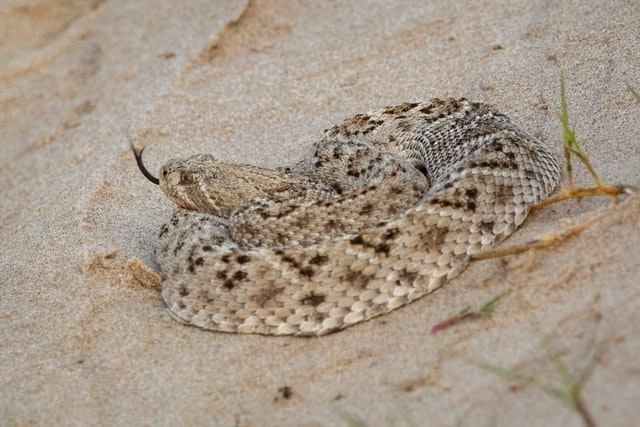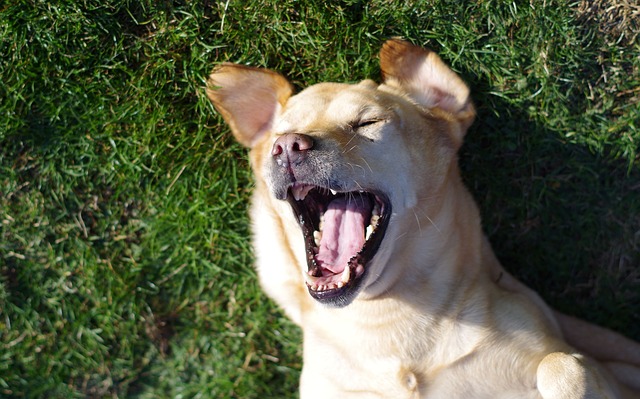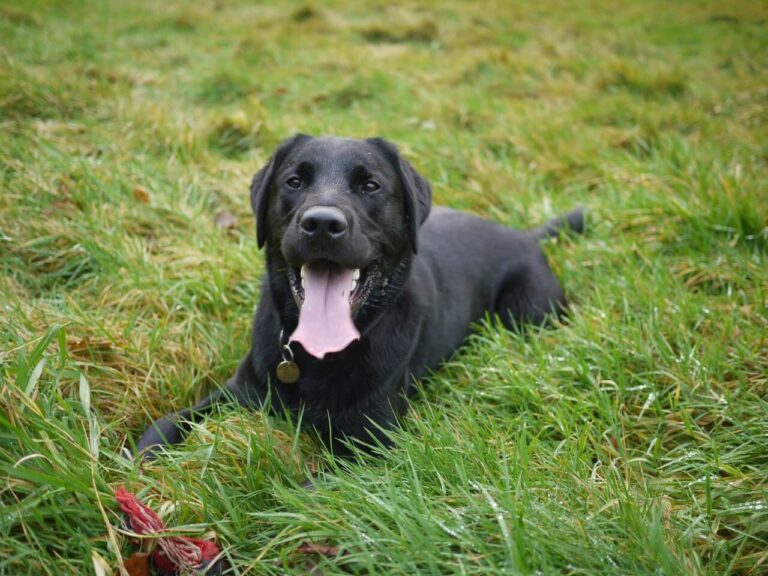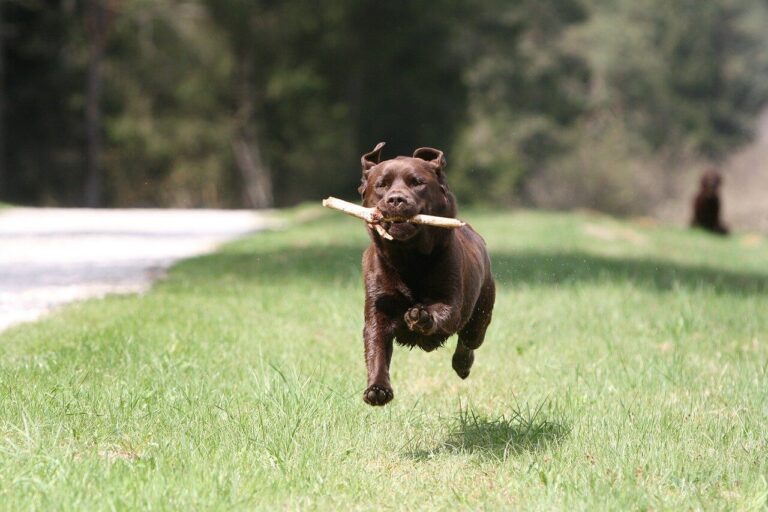Sometimes our pets can behave in very strange ways, and as dog lovers, we don’t always know what’s going on, or what to do about it.
Is your dog acting weirdly without much warning, and you’re concerned about the strange behavior you might be seeing?
Strange dog behavior can be the result of many possible factors, including a combination of them, such as health issues, environmental changes, trauma, injury, animal bite, food issues, lack of adequate activity, or change in home surroundings.
We’re going to take a further look at these possible contributing factors surrounding strange and odd dog behavior.
(This article may contain affiliate links. As an Amazon Associate I earn from qualifying purchases. Learn more)
We’ll also go over some steps you can take to further understand what’s going on with your dog, and tips to help you and your dog get through it!
Most importantly, if you have any concerns or questions about your dog that you feel need immediate attention, we recommend you call your vet for their advice right away. They’re an invaluable resource to all pet owners!
Let’s get started on answering the question, “Why Is My Dog Acting Weird?”
Signs of Odd Dog Behavior – What to Watch For
As a dog parent, you know your pet better than anyone, and you’re often the first person to notice something is “off” with your dog.
There can be many signs that a dog is not behaving as they normally would, but we’re going to go over some of the most common ones that dog owners usually notice and identify as abnormal for their pets.
These are some characteristics that dog owners notice when they feel their pet’s behavior has changed. You might at some point notice some of these in your dog, or even other ones not listed, and you should pay close attention if you see signs that concern you.
Withdrawing
Dogs can sometimes withdraw from interaction in a way that’s not normal for them. This can be withdrawing from play with other dogs, or avoiding contact with people, hiding in another room, hiding under the bed, or refusing to snuggle in a way that they normally would.
Another sign of withdrawal in dogs is when they avoid interest in activities that they normally would love to do with you, such as going for a walk, playing fetch, or going for a swim.
These are signs that your dog is withdrawing from their daily routine and can definitely be a sign that your dog is acting weirdly.
Shaking/Trembling
Dogs can sometimes shake or appear agitated and experience their whole body trembling. This can occur all of a sudden and be very unexpected.
Your dog might also have certain areas of their body which are trembling, such as legs or paws only.
Sometimes dogs can also have seizures, which you might notice their entire body appear to freeze up or shake. Seeing your dog shaking can be very stressful, upsetting, and scary.
We’ve experienced seizures in one of our Labrador Retrievers, and our Lab was very frightened (as were we) when it occurred.
Refusing to Eat/Drink
Another sign of your dog acting strangely is a refusal to eat their normal food or drink water. Most dogs, especially Labrador Retrievers, love their food and are very food-oriented. Mealtimes are the highlight of their days sometimes!
Refusing to eat and drink can be a very concerning sign. Your vet will definitely want to know this information when you contact them, so make sure if your pet is exhibiting this behavior, that you are sure to let your vet know right away.

Cowering/Hiding
Another odd dog behavior that you might observe is that they are cowering or hiding and refusing to come out.
A dog acting strangely might be hiding under the bed, or hiding in a different room. They might also be cowering close to the ground, tucking their tails, and posturing in a defensive or aggressive position.
They may also climb on you or sleep on top of you as if to hide behind you or gain protection from you.
You might see a dog bare its teeth, growl, or whimper if they are cowering as well.
Vomiting & Diarrhea
Another symptom of odd dog behavior, especially coming on all of a sudden, is vomiting and/or diarrhea. Your dog might be acting normally one moment, and then suddenly and unexpectedly become sick.
This is often one of the first signs in dogs that pet owners will notice where they identify that something is wrong with their dog.
Sometimes if a dog ingests food or an item that is poisonous or dangerous to dogs, they will respond by vomiting or having diarrhea.
For example, avocados can be very toxic to dogs, and we noticed vomiting, lethargy, and withdrawing behavior from one of our Labradors when he ingested an avocado (unbeknownst to us). Those were the first signs that something was very wrong, and we were able to reach out to our vet right away to save him.
A call to your vet when you notice vomiting or diarrhea in your dog will help ensure you get to the cause of the problem as soon as possible, and obtain your vet’s recommendation on how to best treat your dog’s issues.
Low Energy/Lethargy
Another sign of weird behavior you might notice in your dog is low energy or acting lethargic.
This is when your dog is lying around much more than normal for their typical day. They might seem more sleepy, tired, or just generally low-energy.
Some dog breeds, such as Labradors, are very active and high-energy, so you might notice lethargy and tiredness very obviously in your dog.
Other dog breeds might be lower-energy and more mellow, and it might be less obvious at first that they are acting more tired.
Still, it’s important to pay close attention to your pet’s behavior, and as you know your dog best of all, trust your judgment if you think something’s off with their behavior. It’s always better to ask for help than ignore a problem with your pet!
Potential Causes of Why Your Dog Is Acting Weirdly
There are a multitude of causes for strange dog behavior, but we’re going to go over some of the reasons you might be seeing a change in your pet.
Let’s take a look at some possible causes for why your dog is acting strangely.
Health Issues
Your dog might be experiencing a medical problem or health problem that’s affecting their behavior and causing changes in normal activity for them.
There are some health issues that Labrador Retrievers are more prone to, such as joint issues, allergies, cancer, eye problems, and exercise-induced collapse, to name a few. For more information on these and other health issues in Labradors, read our article here.
Other breeds of dogs can have similar health problems as Labradors, especially other large breed dogs like Golden Retrievers, Dobermans, and Shepherds.
Your dog might also be suffering from an undiagnosed medical condition and might be exhibiting symptoms as a result.
For example, heartworm disease in dogs can cause coughing, lethargy, and other odd behaviors in your dog, as the disease progresses. If you haven’t had your dog tested by your vet, or had them on preventive medication, they could be heartworm positive and you might not know until you see these symptoms.
We have more information on what you need to know about heartworm disease and its prevention in our guide to heartworm disease in Labradors.
If your dog is on medication, and you’ve recently made changes to it, be sure to let your veterinarian know if you notice any strange dog behavior that you might feel could be contributing to your dog acting weirdly.
Sometimes strange dog behavior can be caused by health problems or illness, and you should consult your vet right away to get your dog evaluated.
Labs and other types of active retrievers can sometimes develop an overuse injury called Droopy Tail Syndrome/Limber Tail Syndrome, which can cause their tails to go limp or flat and be unable to wag or move.
Your Lab might also have eaten or ingested something in their environment, such as a plant or other substance, including eating grass, which can cause sickness or vomiting, among other symptoms. Be sure to contact your vet if you suspect any kind of toxic food or plant ingestion in your dog right away.
Environmental Changes
Sometimes changes in weather or environment can have an effect on our pets. These types of changes might cause you to see signs of stress or strange behavior exhibited by your dog.
Some dogs are sensitive to loud, recurring sounds, such as fireworks or thunderstorms.
You might notice your dog cowering, shaking, or hiding when these triggering events occur. It can be hard to watch your dog shake and tremble during an event that seems frightening to them.
You might also notice that your dog becomes agitated during severe weather and might need extra comforting from you, rather than withdrawing. They might be barking excessively or whimpering during times of stress and upsetting weather events.

Trauma
Dogs can be upset by a previous incident of trauma and be acting strangely in response to something bad that occurred in their past. They might cower or hide in fear of a bad event occurring, or in anticipation of your reaction, even if you’ve never reacted harshly or punished them.
If you’ve adopted a rescue dog, as we have, you need to be aware that you don’t know the dog’s complete past history and that there might be certain things that your dog was previously traumatized by (if they had a harmful or neglectful prior owner).
We have a beloved rescue Labrador who appears to be fearful of barking, and will withdraw and hide after barking because he had some kind of previous bad experience with (likely) being punished for barking by a prior owner.
Dogs can be traumatized or fearful from a bad experience with another dog, especially as young puppies, so be careful who you allow your dog to socialize with especially when they’re younger.
Injury
Your dog might be acting strangely because they could have an injury. They might have a wounded paw, injured leg from playing, or joint problems, which Labradors are especially prone to.
Your dog might have been injured playing with another dog, or from overdoing excessive exercise. This can happen if it’s a sudden increase in the amount of physical activity over what they usually would get in a normal day.
For example, if you take your Labrador out into the field for a day of upland game or waterfowl hunting, you might notice them acting much differently after a day of excessive or strenuous physical activity, if it’s a dramatic increase from their typical day.
You might also see your dog limping, struggling with stiff legs, or have tender paws.
Animal Bite
Another reason for your dog acting weirdly could be a bite from another animal.
This could be a bite from another dog, or from a creature such as a snake or a spider.
We’ve had multiple incidents with snake bites in our Labradors, one of which required many thousands of dollars of medical care and surgery.
Depending on the climate you live in, you might have to be aware of certain types of animals being a danger to your dog (and your family).
We have lived in the southern United States with Labradors and had to maintain a heightened awareness of the presence of snakes (such as water moccasins and eastern diamondbacks) and alligators, among other critters.
Even in the Rocky Mountains of the American West, where we’ve also had Labs, you need to be aware of predators such as bears, mountain lions, and certain types of snakes that could harm your pet.

Always supervise your dog when outdoors and make sure you also keep a close eye on them when playing with another dog.
Sometimes dogs communicate through biting, and your dog could easily become a victim of an aggressive or territorial dog.
Food Issues
A change in food can also cause behavioral changes and make you wonder why your dog is acting weird.
Sometimes when a dog changes to another type of food, they may initially refuse it or eat much lower amounts than normal for what you usually observe of them.
If you are in the process of trying a new food for your dog or switching their food, it’s important to change your dog’s food slowly and take your time over the course of 7-10 days.
You’ll want to gradually taper the old food and introduce the new one gently because it can cause vomiting or diarrhea if you go too quickly.
Choosing the right food for your dog can also be a difficult challenge, so we have an article to help you know what to look for in a great food to make it easier.
Lack of Adequate Activity
Dogs can exhibit strange behavior when they don’t get enough exercise as well. High energy breeds like the Labrador Retriever need daily exercise, walks, play, or other physical activity to burn off that amazing Lab energy.
Sometimes if a dog does not get their usual physical activity, you might see changes in their behavior that strike you as strange.
The phenomenon known as the “Dog Zoomies” can sometimes be seen in dogs, especially younger ones, releasing sudden bursts of pent-up energy without warning that can catch you off guard!

Change in Home Surroundings
A change in home surroundings can also cause you to ask, “Why Is My Dog Acting Weirdly?”
Moving to a new home, or having guests in your home visiting can cause your dog’s daily routine to be disrupted, and you might see them struggle for a bit to return to their sense of normalcy.
Dog’s thrive on routine and a regular schedule, and you might notice that they act a bit “off” when their routine is disrupted, even if it’s for a great reason such as vacation or having guests.
Another change in home surroundings that often creates a situation with a dog acting weirdly is when you add a new dog to your household.
Whether temporary or permanent, adding a new dog to your home can upset the current dynamics of your household, and cause your existing dog to act in ways that you might not normally see.
Because it’s so important to start off correctly and introduce a new dog to your home the right way, we have a guide to help you avoid struggles and battles when bringing in a new dog to your home.
What to Do When You Notice Your Dog Acting Weirdly
Now that we’ve covered the signs of strange dog behavior, and some of the possible causes that might be behind it, let’s take a look at what you can do about it when your dog’s behavior is concerning to you.
Call Your Veterinarian
The first step in dealing with your dog acting weirdly is to reach out to your veterinarian for their expert advice.
You don’t want to try to guess a treatment option for your dog, especially if you suspect a medical problem or injury.
As we discussed above, our vet’s amazing response and excellent care helped save our Labradors from several close calls with poisonous items (avocado ingestion) and snake bites.
Please seek out your vet and ask for their guidance! It could save your dog’s life too.
Monitor Their Food and Drink Consumption
One thing you can do while you’re waiting for treatment from your vet, or if your vet has ruled out an injury or medical problem, is to continue to monitor your pet’s food and water intake.
This is also important if your dog is in the process of having their food switched because you’ll want to make sure they are still getting adequate nutrition during this time.
Make sure your dog has access to clean, fresh water and that they are regularly consuming it to prevent dehydration.
Check Your Home & Yard for Possible Risks to Harmful Substances or Items
Another strategy in helping manage your dog’s unusual behavior is to do a check of your home and yard for the presence of harmful plants, items, or foods that can be toxic to your pet. Make sure your Lab is not digging outside and hasn’t gotten into any hazards in your outdoor space.
A list of poisonous plants for dogs can be found here. Check your yard for things that could pose a danger to your pet and remove items inside your home that your pet could get into.
Check Food and Medication Supplies
Another step you can take is to examine your food and medication supplies to make sure your dog did not accidentally ingest too much food or too much of their medication.
Your dog might experience strange behavior, especially vomiting and diarrhea if they overeat or ingest medication. Labradors are prone to overeating if they are allowed unlimited access to their food!
If you suspect excessive food or medication consumption, contact your vet immediately to get attention for your dog right away.
Help Your Dog Adjust to Family or Other Household Changes
If you’re dealing with your dog acting weirdly due to moving, having guests in your home, or environmental changes like weather or fireworks, take steps to help your dog establish a normal routine and be consistent.
Establish a good schedule for your dog and keep them to a regular routine. Plan ahead for events such as the 4th of July fireworks, or severe weather by having a plan where you’ll go with your dog. Use things such as white noise, music, or stimulating dog toys to help your dog cope with these stressors.
Having a plan in advance will help you manage these types of environmental circumstances that can cause your dog to behave in a very odd way.
Seek Out a Dog Behaviorist If Needed
If your pet’s odd behavior is a constant concern or disruption, and you and your vet have ruled out a medical problem, illness, or injury, you might want to seek out the assistance of an expert dog behaviorist.
A special trainer can come to your home and provide guidance and direction to deal directly with some of the challenges your dog might be facing. It’s always a good idea to recognize when you’ve reached your limits and need additional help.
Summary – Why Is My Dog Acting Weird? Strange Dog Behavior Explained
As dog lovers, sometimes our pet’s behavior can be upsetting, confusing, and concerning. Dogs occasionally behave in very strange ways, and as dog lovers, we don’t always know what’s going on, or what to do about it.
Why your dog is acting weirdly could be the result of health issues, environmental changes, trauma, injury, animal bite, food issues, lack of adequate activity, or change in home surroundings.
It’s important to be aware of your pet’s behavior and watch for unusual signs or symptoms in your dog. It could be your dog’s way of trying to let you know that something is wrong and that they need your help. Contact your vet right away to get their guidance and expert advice.
We hope this guide helps you better understand some types of unusual dog behavior, some possible causes, and ways to help your dog feel like themselves again!







